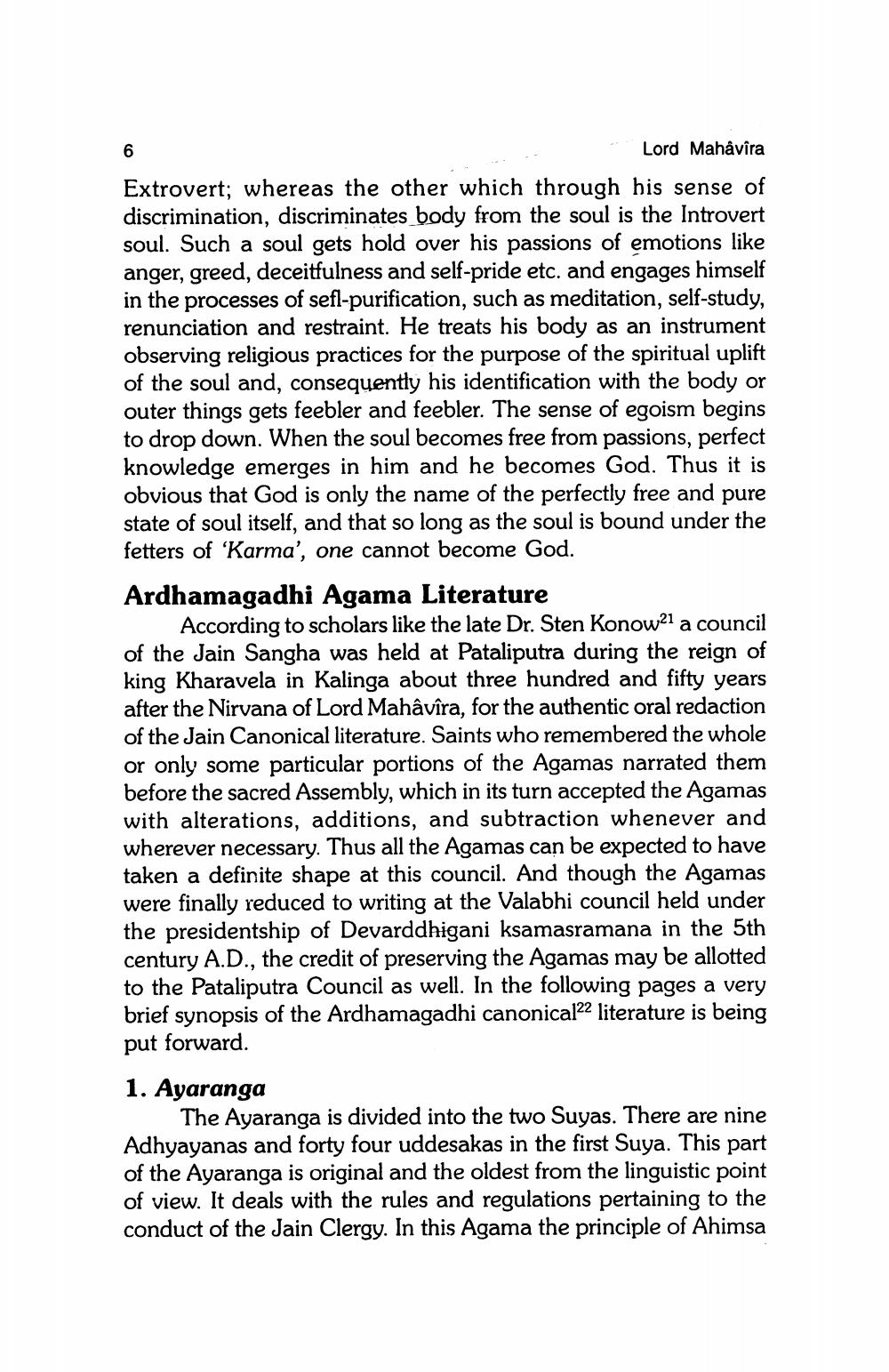________________
Lord Mahâvîra
Extrovert; whereas the other which through his sense of discrimination, discriminates body from the soul is the Introvert soul. Such a soul gets hold over his passions of emotions like anger, greed, deceitfulness and self-pride etc. and engages himself in the processes of sefl-purification, such as meditation, self-study, renunciation and restraint. He treats his body as an instrument observing religious practices for the purpose of the spiritual uplift of the soul and, consequently his identification with the body or outer things gets feebler and feebler. The sense of egoism begins to drop down. When the soul becomes free from passions, perfect knowledge emerges in him and he becomes God. Thus it is obvious that God is only the name of the perfectly free and pure state of soul itself, and that so long as the soul is bound under the fetters of 'Karma', one cannot become God.
6
Ardhamagadhi Agama Literature
According to scholars like the late Dr. Sten Konow21 a council of the Jain Sangha was held at Pataliputra during the reign of king Kharavela in Kalinga about three hundred and fifty years after the Nirvana of Lord Mahâvîra, for the authentic oral redaction of the Jain Canonical literature. Saints who remembered the whole or only some particular portions of the Agamas narrated them before the sacred Assembly, which in its turn accepted the Agamas with alterations, additions, and subtraction whenever and wherever necessary. Thus all the Agamas can be expected to have taken a definite shape at this council. And though the Agamas were finally reduced to writing at the Valabhi council held under the presidentship of Devarddhigani ksamasramana in the 5th century A.D., the credit of preserving the Agamas may be allotted to the Pataliputra Council as well. In the following pages a very brief synopsis of the Ardhamagadhi canonical22 literature is being put forward.
1. Ayaranga
The Ayaranga is divided into the two Suyas. There are nine Adhyayanas and forty four uddesakas in the first Suya. This part of the Ayaranga is original and the oldest from the linguistic point of view. It deals with the rules and regulations pertaining to the conduct of the Jain Clergy. In this Agama the principle of Ahimsa




